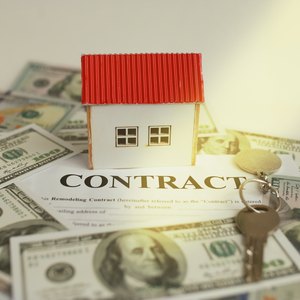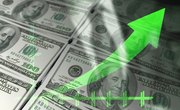
Recent economic reports indicate that the U.S. economy is headed into a recession. The classic definition of an economic recession is two consecutive quarters of decline in the gross domestic product, and that has happened in the first two quarters of 2022.
A recession has widespread economic consequences on unemployment, personal incomes and the housing market. Here’s how a recession would affect real estate and home prices during a recession.
Recession Effects on Housing Market
The direction of the real estate market is uncertain, and predicting which way the U.S. housing market is going to go is very difficult because of the effects of inflation, actions of the Federal Reserve Bank and the inventory level of unsold homes on the market.
Buying a house during an economic downturn could result in a better deal. During a recession, the number of foreclosures will increase as people lose their jobs, which will add more homes available on the market for sale and result in lower home prices. If the demand for houses goes down because of fewer buyers on the market, then homeowners will be more willing to make concessions by lowering prices or offering to pay for closing costs.
Another issue is the availability of mortgages. Lenders could be less willing to lend money for mortgages in times of recession if people are faced with uncertainty about keeping their jobs or if their credit scores are dropping.
All this uncertainty just means housing prices could remain steady, go down or even increase. The direction is just too cloudy to know for sure.
Current Housing Market State
Since coming out of the pandemic, the housing market has been sizzling hot. Housing prices have been rising quickly because of low inventory and high buyer demand. According to data from the St. Louis Federal Reserve Bank, average home values in the United States increased 22.8 percent year-over-year from the first quarter of 2021 to the first quarter of 2022.
But all of these conditions may be starting to change.
The U.S. appears to be headed into a recession, but it's not clear what will happen to home prices.
Inflation Effects on Home Sales
Inflation has reached its highest level in the past 40 years. As prices have driven up costs for everyday expenses, such as food and gas, families have less funds available to spend on a mortgage payment. In addition, potential homebuyers are reluctant to take on a higher financial commitment, like a home mortgage, in times of economic uncertainty.
Federal Reserve Bank Actions
In an attempt to slow down the economy and decrease inflation, the Federal Reserve Bank is raising interest rates.
The Federal Reserve Bank usually lowers interest rates during a recession to stimulate the economy. But this time we have high inflation and a low unemployment rate, and the Federal Reserve Bank is raising interest rates to reduce inflation.
When the Fed raises the interbank lending rate, all other interest rates go up, including credit cards and mortgage rates. Increases in mortgage rates shrink the number of borrowers that are able to qualify as higher loan payments reduce affordability.
Mortgage Rates
In the near-term, when the Fed goes through a series of rate hikes, mortgage rates will eventually go up to make it more expensive to buy a house and reduce the number of homebuyers who can qualify for a mortgage. On the other hand, if the Fed is able to reduce the rate of inflation, interest rates and lack of demand in the housing market could lead to a reduction in mortgage rates.
Housing Supply and Demand Changes
During a recession, the number of homebuyers looking for new and used houses will decline, which will reduce the bidding wars, as peoples’ fear of losing their jobs increases, and rising mortgage rates make houses less affordable.
On the supply side, home builders’ confidence had declined for six straight months in June 2022, according to the National Association of Home Builders Housing Market Index (HMI). This is the lowest reading for the HMI since June 2020. As a result, builders are cutting back on their developments as demand softens.
References
- Federal Reserve Bank of St. Louis: Average Sales Price of Houses Sold for the United States
- Forbes: The Housing Market Amid Recession Fears: Should You Buy Now Or Wait?
- Fortune: The Housing Market Enters Into Recession—Here’s What to Expect Next
- Newsweek: What Happens in a Recession to House Prices?
- National Association of Home Builders:Weakening Builder Confidence Points to Economic Troubles Ahead
- Bureau of Economic Analysis: Gross Domestic Product, Second Quarter 2022 (Advance Estimate)
Writer Bio
James Woodruff has been a management consultant to more than 1,000 small businesses. As a senior management consultant and owner, he used his technical expertise to conduct an analysis of a company's operational, financial and business management issues. James has been writing business and finance related topics for work.chron, bizfluent.com, smallbusiness.chron.com and e-commerce websites since 2007. He graduated from Georgia Tech with a Bachelor of Mechanical Engineering and received an MBA from Columbia University.

